Air Cooled vs Water Cooled Chiller Systems – What’s the Difference?
Selecting the best chiller is a crucial decision for any industrial or commercial facility. Whether you’re running an office, hospital, hotel, shopping mall, or manufacturing plant, understanding the distinction between a water-cooled chiller and an air-cooled chiller will enable you to make an informed choice. Both systems are commonly employed in contemporary HVAC equipment; however, they function differently, offer various efficiencies, and have specific installation requirements.
We’ll examine the ways these systems operate, compare their performance, and help you determine the right chiller for your needs.
What is an Air Cooled Chiller System?
An air cooled chiller can remove the heat from water by using air. It utilizes fans to circulate air over the condenser coils. There, the refrigerant sucks up warmth directly towards the environment. Because it doesn’t require the addition of a cooling tower or water supply, this type of HVAC chiller is typically easier to set up and maintain.
Air Cooled Chiller Working
The air-cooled chiller’s working process begins by circulating water through the evaporator. There, it absorbs the heat of the processing load or the building. The refrigerant absorbed this heat before moving into the condenser. The fans push air around the condenser coils, which disperse heat. This simple mechanism makes air-cooled chillers ideal for outdoor installations, where water and space may be restricted.
Applications
Air-cooled chillers are a popular choice for cooling commercial buildings, as well as small to medium-sized manufacturing facilities and data centers. They are typically employed in areas with water shortages or in locations where the simplicity of installation is the primary concern.
What is a Water Cooled Chiller System?
A water-cooled chiller utilizes water, rather than air, to remove heat. This kind of system requires a cooling tower, as well as an additional pump system that can constantly supply water to block heat. While installation is more challenging, the benefits typically outweigh the initial cost.
Water Cooled Chiller Working
The water cooled chiller’s work process begins the same way, with the water flowing throughout the evaporator. The refrigerant absorbs heat that is transferred to the condenser. The heated condenser water is then pumped into a cooling tower, where the heat is released into the air. This process enhances the efficiency of heat transfer, enabling chillers that cool with water to achieve higher performance, particularly in large-scale processes.
Applications
Industrial water-cooled chillers can be extensively employed in large office complexes, malls, hospitals, and extensive manufacturing facilities. They are also suitable chillers used for process cooling, where maintaining temperature control is crucial.
Key Differences: Water Cooled vs Air Cooled Chiller Systems
Deciding between a water-cooled chiller and an air-cooled chiller requires considering a variety of factors, such as installation cost, performance, and maintenance needs.
1. Energy Efficiency
A water-cooled chiller typically has greater efficiency than an air-cooled chiller, as water has superior thermal transfer characteristics compared to air. In applications with high capacity, variations in chiller efficiency can result in significant energy savings over time.
2. Installation Space
Air-cooled chillers are independent and require no equipment. They are great for outdoor spaces or rooftops. Water-cooled chillers require space for pumping, cooling towers, and piping, making them ideal for buildings equipped with plant rooms.
3. Operating Costs
Although the water-cooled chiller’s price is initially higher due to the auxiliary device, its operational cost is usually lower as a result of its superior water-cooled chiller performance. Air-cooled chillers generally cost less initially; however, they consume more energy under high-load situations.
4. Maintenance Needs
Air-cooled chiller maintenance involves cleaning the condenser coils and ensuring that the airflow is unobstructed. Maintenance for water-cooled chillers is more demanding, as it requires water treatments to prevent the formation of scale, fouling, or corrosion within the cooling tower.
5. Climate Considerations
Air-cooled chillers perform well in mild climates, but their effectiveness decreases significantly when temperatures are extremely high or low. Coolers that are water-cooled stay steady regardless of the temperature as long as the cooling tower is functioning correctly.
Which Is Best for Your Industry?
Deciding on the most efficient chiller system to suit your needs depends on your specific needs. If you require a large-capacity, energy-efficient system suitable for industrial or commercial construction, a commercial-sized water-cooled chiller is generally the preferred option. If water availability is limited or space for installation is restricted, a commercial air-cooled chiller might be a better option.
Central chiller systems that serve multiple floors or buildings, particularly those that are water-cooled, are typically cost-effective in the long term. However, when it comes to mobile or temporary applications, air-cooled chillers are simpler to set up and move.
Cost and Efficiency Considerations
Chiller Price vs Lifetime Value
Although the initial cost of an air-cooled chiller might be lower, its operating costs could be more expensive over the long term. A water-cooled chiller might seem more expensive, but its superior performance typically compensates for the difference in energy consumption throughout the chiller’s life.
Maintenance Costs
Regular maintenance of the chiller ensures maximum performance and prolongs its life span. Chillers that are water-cooled typically require regular programs for water treatment, whereas air-cooled chiller manufacturers emphasize the importance of cleaning coils and managing airflow.
Why choose to partner with experienced Chiller Manufacturers?
The choice between an air-cooled chiller or a water-cooled chiller system isn’t only about the upfront cost. It is a matter of evaluating the building load profile as well as climate conditions, operational hours, and the long-term ROI. Expertly trained chiller makers, such as Earth Cooling System, can offer expert advice and customized solutions tailored to your specific requirements.
About Earth Cooling System
Established in 2014, with its headquarters in Delhi, Earth Cooling System is one of the largest and fastest-growing manufacturers of commercial and industrial chillers. Exports reach more than four countries, including those in the EU and the US. The company offers modern scroll chillers, screw chillers, reciprocating chillers, and custom process chillers, all designed to suit a wide range of applications.
Directed by Ms. Sandeep Kheda, a B.Tech in Electrical Engineering, the Earth Cooling System is a blend of sustainability, innovation, and world-class engineering, offering high-performance solutions. Our product range includes air cooled chiller manufacturers, water cooled chiller manufacturers, and water-cooled screw chillers, which meet international standards for power efficiency as well as dependability.
Top international organizations and renowned consultants worldwide endorse us. For everything from central chiller units to industrial HVAC, our mission is to help clients save energy over time while ensuring the highest performance.
Conclusion: Making the Right Choice
When comparing water-cooled and air-cooled chiller systems, there is no universal answer. Facilities with large cooling loads and extended operating times often benefit from a water-cooled chiller due to its higher efficiency. However, those who value cost-effective installation, quick setup, or a small space might prefer an air-cooled chiller more suitable for their needs.
If you’re looking to purchase an industrial water-cooled chiller or an industrial air-cooled chiller, talk to experts who are knowledgeable about each technology in detail. Earth Cooling System is here to help you choose the best solution, backed by modern engineering, reliable support, and a global understanding.
For personalized advice, call Earth Cooling System at +918048610972. Let our experts help you develop a cost-effective chiller solution tailored to your specific cooling needs.


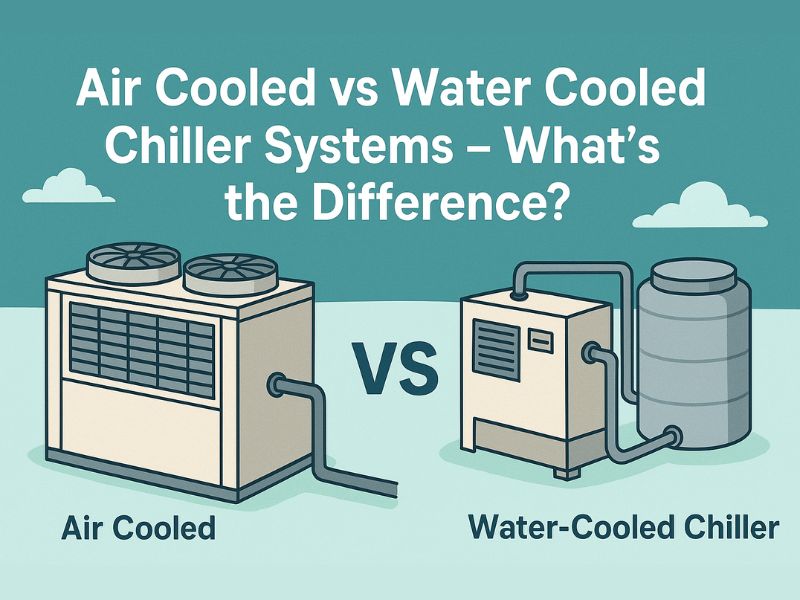
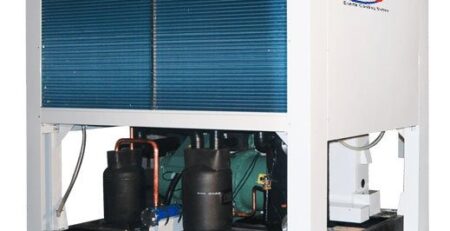


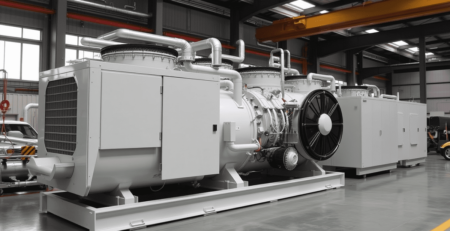


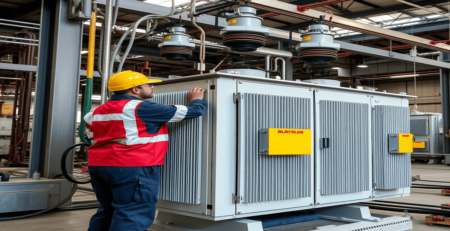
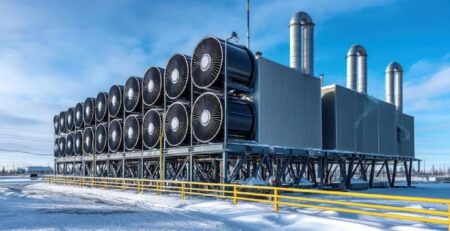
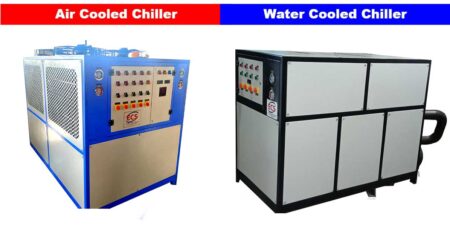
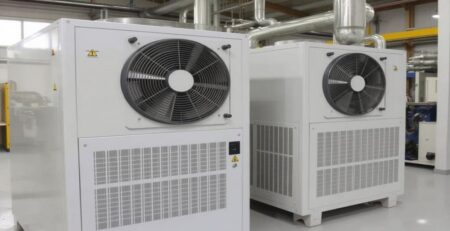
Leave a Reply